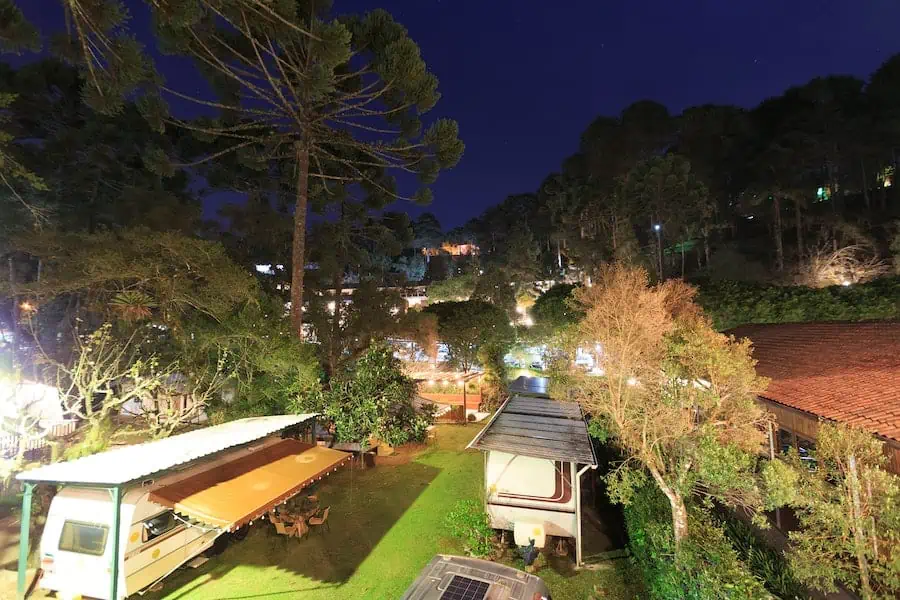A Comprehensive Guide To Buying Enclosed Trailers: What You Need To Know
Share
When it comes to finding the perfect enclosed trailer for your hauling needs, navigating the world of options and considerations can be overwhelming. With a multitude of enclosed trailers for sale on the market, it’s crucial to equip yourself with the knowledge necessary to make an informed decision. Enclosed trailers offer a secure and weather-resistant solution for transporting valuable goods or equipment, making them a popular choice for businesses, motorsport enthusiasts, and individuals with specific hauling requirements. In this comprehensive guide, we will provide you with essential information on buying enclosed trailers, covering everything from understanding different trailer types to considering important features and factors. By the end, you’ll be well-prepared to explore the vast selection of enclosed trailers for sale and select the one that perfectly suits your needs.
1. Types Of Enclosed Trailers
Enclosed trailers come in various types, each designed to serve different purposes. Understanding the different types can help you determine which one is best suited for your specific needs. Here are a few common types:
- Cargo Trailers: Cargo trailers are versatile and often used for general-purpose hauling. They come in various sizes and configurations and are suitable for transporting goods, equipment, or personal belongings.
- Car Haulers: Designed specifically for transporting vehicles, car haulers feature ramps or hydraulic lift systems for easy loading and unloading. They are popular among car dealerships, car enthusiasts, and individuals moving their vehicles.
- Motorcycle Trailers: As the name suggests, motorcycle trailers are designed to transport motorcycles safely and securely. They often feature wheel chocks, tie-down points, and ramps for easy loading and unloading.
- Specialty Trailers: Specialty trailers cater to specific hauling needs. Examples include concession trailers for food vending, mobile office trailers, and refrigerated trailers for transporting perishable goods.
2. Trailer Size And Capacity
Choosing the right size and capacity for your enclosed trailer is crucial to ensure you can transport your items comfortably and safely. Consider the following factors when determining the appropriate size:
- Payload Capacity: The payload capacity refers to the maximum weight that the trailer can carry. Ensure the trailer’s payload capacity is sufficient to accommodate your intended cargo.
- Interior Space: Evaluate the interior dimensions of the trailer to ensure it can accommodate your items. Consider the height, width, and length to ensure a proper fit.
- Hitch and Towing Capacity: Check your vehicle’s towing capacity and ensure it matches or exceeds the trailer’s weight when fully loaded. Additionally, ensure your vehicle is equipped with the appropriate hitch to connect to the trailer.
3. Construction Materials
Enclosed trailers are typically constructed using different materials, each with its own advantages and considerations. The common materials used for trailers include:
- Steel: Steel trailers are known for their durability and strength. They are ideal for heavy-duty hauling and offer excellent protection against impacts and harsh weather conditions. However, steel trailers may be more susceptible to rust and require regular maintenance.
- Aluminum: Aluminum trailers are lightweight and corrosion-resistant, making them a popular choice. They offer good fuel efficiency, easier towing, and reduced wear on tires and suspension components. However, aluminum trailers may have a higher upfront cost compared to steel trailers.
- Fiberglass Composite: Fiberglass composite trailers combine strength, durability, and resistance to corrosion. They are lightweight and offer good insulation, making them suitable for transporting temperature-sensitive cargo. However, fiberglass trailers can be more expensive and may require specialized repairs if damaged.
4. Door Configurations
The type of door configuration on your enclosed trailer will affect ease of access, loading, and unloading. Consider the following door options when making your selection:
- Ramp Doors: Ramp doors provide a gradual incline, allowing for easy movement of items in and out of the trailer. They are commonly used for loading vehicles, equipment, and large items.
- Barn Doors: Barn doors consist of two doors that swing open and provide a full-width opening. They are suitable for carrying large items that may not fit through a single-door opening.
- Side Doors: Side doors offer convenient access to the trailer without having to open the rear doors. They are useful for quick access to specific items or for loading and unloading smaller items.
5. Security Features
Ensuring the security of your cargo is paramount when investing in an enclosed trailer. Look for the following security features:
- Locking Mechanisms: Choose trailers with robust locking mechanisms, such as high-quality padlocks or integrated locks, to prevent unauthorized access.
- Reinforced Walls and Floors: Trailers with reinforced walls and floors provide additional security and protect against potential break-ins or damage during transit.
- Security Alarms and Tracking Systems: Consider trailers equipped with security alarms and tracking systems to deter theft and increase the chances of recovery in the unfortunate event of a theft.
6. Budget Considerations
Establishing a budget is essential before purchasing an enclosed trailer. Consider not only the initial cost but also ongoing maintenance, insurance, and potential customization expenses. Remember, investing in a high-quality trailer that meets your needs will provide long-term value and peace of mind.
7. Customization Options
Depending on your specific needs, customization options for your enclosed trailer may be worth considering. Some common customization options include:
- Interior Shelving and Racks: If you need to organize and secure your cargo efficiently, interior shelving and racks can provide added convenience and storage options.
- Electrical Systems: Electrical systems can provide power for lighting, interior outlets, or equipment that requires electricity. Consider your power requirements and opt for trailers with pre-wired electrical systems or provisions for customization.
- Exterior Graphics and Branding: If you’re using the trailer for business purposes, consider adding exterior graphics and branding to promote your company and create a professional appearance.
8. Researching And Choosing A Reliable Manufacturer Or Dealer
Lastly, it’s important to research and choose a reputable manufacturer or dealer when buying an enclosed trailer. Consider the following:
- Read Reviews and Ratings: Look for customer reviews and ratings of different manufacturers or dealers to get insights into their product quality, customer service, and overall reputation.
- Warranty and After-Sales Support: Check the warranty provided by the manufacturer and inquire about the after-sales support they offer. A reliable manufacturer or dealer should provide good customer service and support for any issues that may arise.
- Visit Showrooms or Attend Expos: If possible, visit showrooms or attend expos where you can physically inspect the trailers, ask questions, and gather more information. This hands-on approach can give you a better understanding of the quality and features available.
Conclusion
By considering factors such as suspension and tires, ventilation and climate control, customization options, and choosing a reliable manufacturer or dealer, you can further enhance your enclosed trailer buying experience. Careful evaluation of these aspects will ensure that your investment aligns with your unique needs and provides a trailer that meets your expectations in terms of performance, convenience, and longevity. Remember, thorough research and attention to detail are key to making an informed decision and finding the perfect enclosed trailer for your requirements.
Buying an enclosed trailer requires careful consideration of various factors, including the trailer type, size and capacity, construction materials, door configurations, security features, and budget. By understanding your specific requirements and conducting thorough research, you can make an informed decision that aligns with your hauling needs. Whether you need an enclosed trailer for business or personal use, prioritizing quality, durability, and security will ensure that your valuable cargo reaches its destination safely.

















